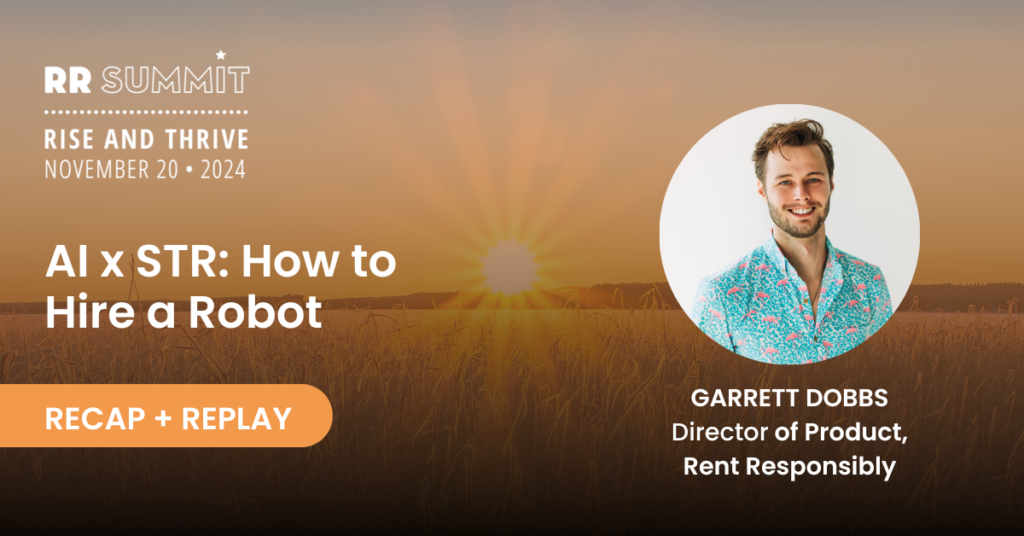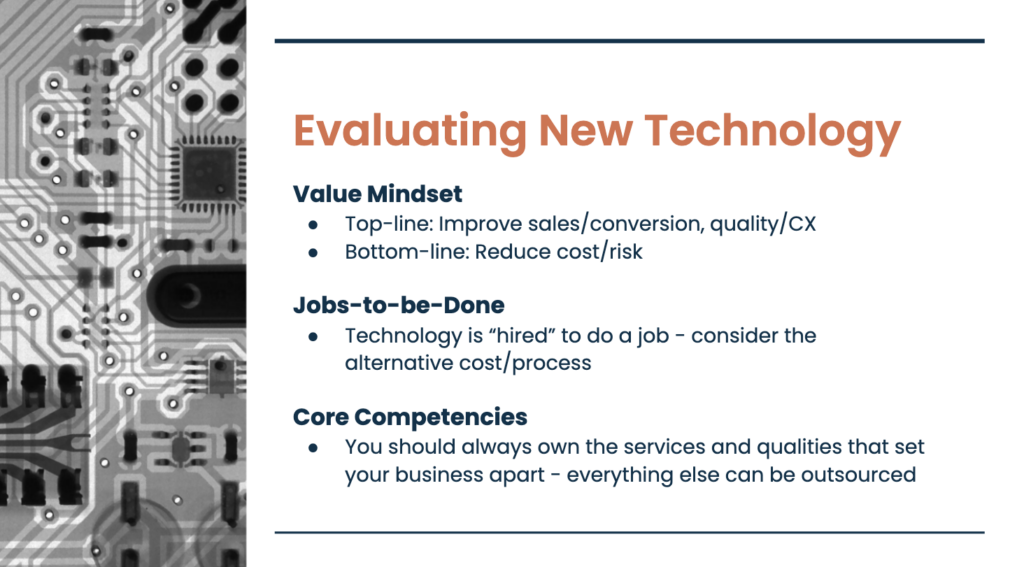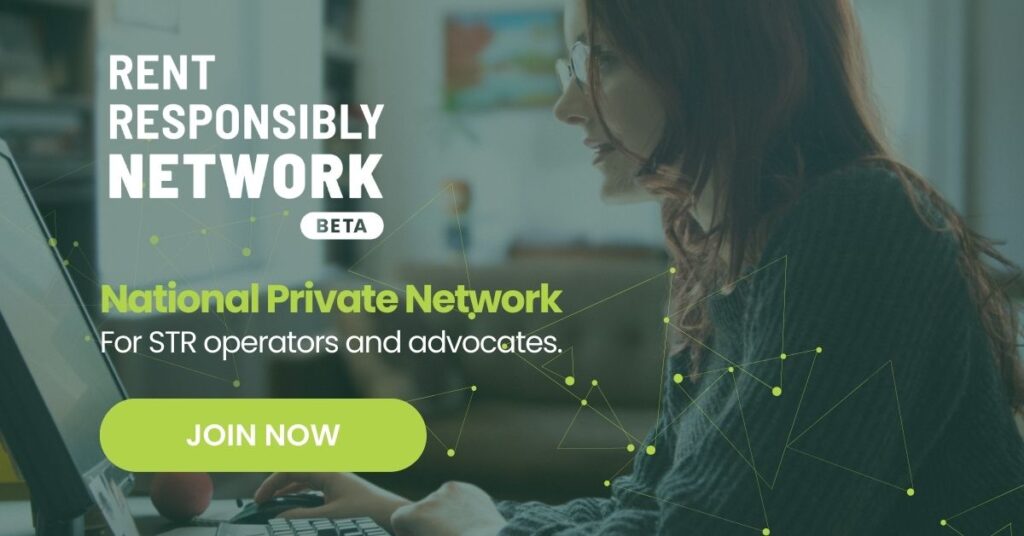Updated on March 3, 2025

We can’t all afford to hire an intern to handle the repetitive tasks of operating a short-term rental business, but with artificial intelligence (AI), we can enlist the help of a free or low-cost “robot” to accomplish much of the daily drudgery that overwhelms our to-do lists.
In this session, “AI x STR: How to Hire A Robot” from the RR Summit: Rise and Thrive, Garrett Dobbs, Director of Product at Rent Responsibly, demystifies artificial intelligence, taking us on a ride through the neural networks and large language models of AI, and providing practical tips and tools that can help with the less-than-dazzling parts of managing a short-term rental.
“AI, I think, is an inevitability,” Garret said. “We’re going to see it more and more in every industry where there’s value that it can demonstrate. So you need to understand how and why you might use it valuably in your business, and just stay informed with where the technology and where the industry is heading.”
Statistics back this up. According to Hostway’s 2024 Short-Term Rental Report, 70.1% of property managers already use AI in their daily business operations, with 61.8% stating it gives them a competitive edge in automation, guest communication, and pricing optimization.
Basics of AI
While AI might seem complex, it’s essentially a tool designed to streamline repetitive tasks, improve efficiency, and provide insights based on data analysis.
It collects massive amounts of data and uses algorithms to evaluate and identify patterns in that data. Users then input prompts and “training” to generate and “coach” desired responses.
“It’s not Terminator. It is just a computer with some software that helps it appear like it’s thinking,” Garrett explained.
It can be a powerful tool for quickly generating answers, images, and written content with excellent grammar and vocabulary in any language. The downside is responses are not always fact-based. Because it only has access to data, relationships between data, and patterns, it is prone to “hallucinations,” inventions based on text patterns, not reality.
“Remember, it’s a machine tossing word salad; never trust it blindly,” Garrett cautioned.
How AI supports STR businesses
AI can support your short-term rental business in three main areas: guest communications, content creation, and business intelligence and data analysis.
Guest communications
AI-powered tools can handle guest inquiries, provide check-in instructions, and even resolve issues like lockouts. Apps like Host Buddy, BOOM Real Estech, and Enso CONNECT allow you to automate messaging, offer real-time support, and personalize communication based on guest needs.
Many solutions also include “graceful failures” that escalate unresolved issues to you.
“If the AI can’t help somebody, it’ll detect that, apologize, and then forward that as an action to you and send you an alert about it to say, hey, this guest needs your help, and I wasn’t able to do it,” Garrett said.
Content creation
Drafting property descriptions, a guidebook, website content, blog posts, and social media updates can be time-consuming. Tools like Streamline, AutoRank, Dtravel, and hostAI help automate content creation. Streamline and AutoRank refresh your listings with optimized content on a regular basis. hostAI uses AI to build direct booking websites and update website content.
These tools analyze popular search terms and can generate compelling copy that attracts more bookings. “Short-term rentals can be a content-heavy business,” Garrett noted. “AI can be really helpful in creating that content.”
Business intelligence
AI can analyze pricing trends, occupancy rates, and market data to help you make better-informed business decisions. Platforms like PriceLabs use AI to suggest pricing adjustments to your short-term rental that maximize your profits. “AI can process that data very quickly and attempt to turn that into summaries or suggestions for you,” Garrett noted.
Bonus AI Tip:
Check out DTravel’s direct booking website creation tool. It uses blockchain technology to create a unique direct booking website with custom branding and mobile capabilities. It has developed Sensei AI to profile travelers’ preferences and recommend vacation rental listings based on those sentiments.
Evaluating AI tools
When considering AI solutions for your business, Garrett recommends three tips: stay value-minded, focus on job-specific solutions, and retain your core competencies (i.e., the things you do best as a human being that help make your business unique).
Focus on value
Choose tools that directly enhance your revenue or reduce costs. For example, automating guest communication can improve reviews and increase bookings, while dynamic pricing tools can optimize your income. Any product or technology you use should either improve your top line or your bottom line.
“Before you use any new technology, come up with a real hypothesis with an actual dollar value assigned to it of what kind of value you’re expecting from this technology in your business,” Garrett suggested.
Job-specific solutions
Think of AI as an employee you hire to perform specific tasks. For example, you may want to improve your website hits, drive bookings, or boost profits. Assess whether a tool fills a gap in your current operations or enhances existing processes.
Retain core competencies
Identify what makes your business unique—your personal touch, hospitality, or branding—and ensure you remain in control of those aspects. Delegate non-core tasks to AI. Garrett recommended always keeping ownership of the tasks you do best in your business.
“Everything else that isn’t that core competency, then that is what you can outsource to technology or other firms, but if it is part of what is your core competency in your business, then don’t hand over the keys to AI,” he said.

Getting started with AI
If you’re new to AI, start small. Experiment with free tools like ChatGPT to:
- Write or revise property descriptions.
- Analyze guest reviews to identify trends or areas for improvement.
- Draft guest responses or house rules.
“If you have zero experience using AI, I urge you to go play with chat GPT,” Garrett said. “Experiment with it, and have fun.”
Use progressive prompting to refine results. For example, if you don’t like the first draft of a property description, give ChatGPT more details and ask for revisions. Experimenting with different prompts and instructions helps yield better content and builds your confidence as an AI adopter.
“Once you’re familiar with it, and you have some experience working with AI, that’s going to lead to your comfort using it as a tool in your business,” Garrett said.
Start by using AI to augment your current workflows; then gradually explore opportunities for automation, especially for guest communication, Garrett advised.
“Think about augmentation as a stepping stone to automation,” Garrett said. “You don’t have to dive in head first and hand the keys over to ChatGPT to communicate with your guests entirely.”
For more on how AI works and real-life examples of AI applications for STR businesses, watch the full replay of Garrett’s session in the RR Network by clicking “Replays & Downloads” and then “RR Summit Replays and Downloads.”
Learn more about Garrett’s tech background in our Humans on STRs series at RentResponsibly.org.
…


